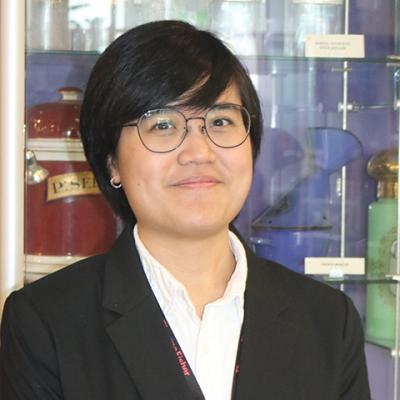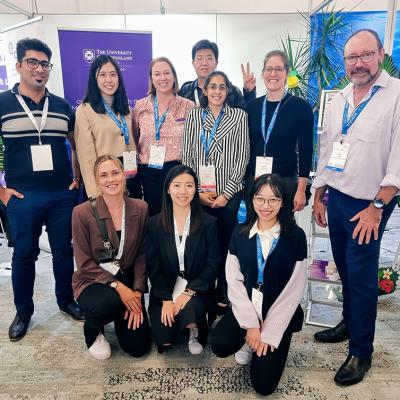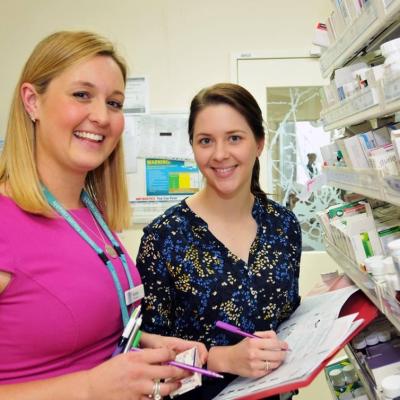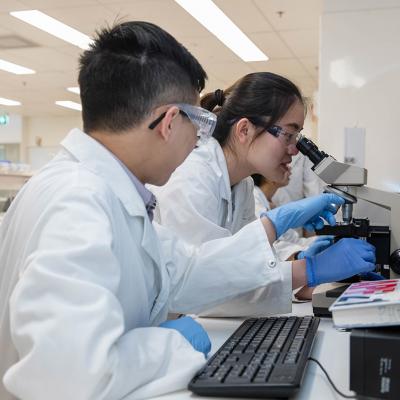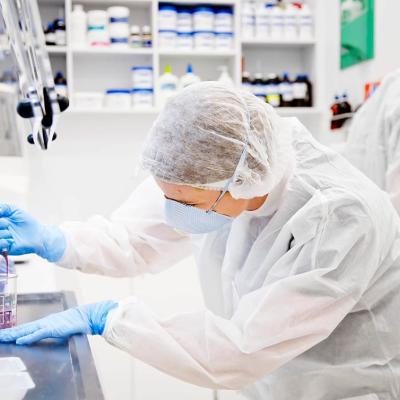Take your pharmaceutical knowledge to the next level and open doors to exciting career opportunities with a Master of Pharmaceutical Industry Practice at UQ, ranked #1 in Queensland and #30 globally for pharmacy and pharmacology according to the QS World University Rankings 2024.
But what makes us one of the best universities for pharmacy isn’t just our rankings. This program gives you the perfect mix of practical experience and industry connections, setting you up for success in the fast-paced pharmaceutical industry.
Whether you're already working in the field or looking to break into the industry, here are our top 4 reasons to study a Master of Pharmaceutical Industry Practice at UQ.
1. Flexible placement and research options
Throughout this program, you may be eligible to complete 2 full-time placements at different organisations, allowing you to apply your knowledge to real-life settings and develop practical skills under the guidance of industry experts. Gaining experience with different organisations broadens your professional perspective and skillset, offering the chance to:
- explore diverse work environments
- engage with various teams and projects
- adapt to different industry practices.
This not only strengthens your versatility but also expands your network, enhances your employability, and prepares you to excel across a wide range of career paths. These placements can be undertaken beyond Brisbane, with exciting opportunities to explore options overseas.
Alternatively, the program's flexible structure allows you the freedom to shape your journey. For example, you may be able to opt for 1 placement and 1 independent research project or 1 coursework semester and 1 placement. This enables you to tailor your studies to your specific career goals – whether that’s hands-on industry experience in multiple locations or conducting research to build expertise in a particular area of interest.
Pharmaceutical industry practice student Vanessa Tirtatjahja shares how the program’s flexibility allowed her to pursue her area of interest and build her skillset and knowledge during her placement at Thermo Fisher Scientific, a world-renowned life science company, helping her discover and work toward her career goals.
"One of the main strengths of the Master of Pharmaceutical Industry Practice (MPIP) program is its flexibility, allowing you to tailor your experience to your career goals and explore opportunities across various sectors of the pharmaceutical industry, from biopharmaceuticals and cosmetics to the food industry," she says.
"Despite my background being primarily in quality and regulatory roles, I was able to secure a placement as a supply chain analyst. This placement gave me hands-on experience, allowing me to manage projects involving procedure updates, process improvements, and overseeing deviations. It also helped me discover and develop my interest in supply chain management, which I plan to continue after graduating."
Ruochen Ning, another student in the program, also emphasises the benefits of placements in preparing her for the field.
"The MPIP program has been invaluable in building my confidence and equipping me with both broad and practical skills to adapt and contribute effectively across various areas of the pharmaceutical industry," she says.
"The hands-on placements have allowed me to apply what I’ve learned, receive feedback from professionals, and strengthen my readiness for a professional career, leaving me feeling prepared and competitive as I enter the job market."
2. Build invaluable industry connections
The Master of Pharmaceutical Industry Practice is designed to help you cultivate invaluable industry connections that are essential for career growth in the pharmaceutical and biotechnology sectors. Networking plays a pivotal role in the program, with unique placement opportunities and direct interactions with industry leaders, allowing you to build a professional network that can lead to exciting career opportunities and advancement.
Pharmaceutical graduate Synnøve Aamold shares how networking during her placements gave her a competitive edge in the job market.
“A lot of the job positions in the pharmaceutical industry are internally advertised," she says.
"This means connections are crucial, and this program is tailored to help you make those connections. I was able to connect with people across the industry, gaining insight into diverse skillsets and creating opportunities for my career.”

Vannessa and Ruochen share similar experiences with the networking opportunities they encountered during the program.
“The program offers excellent lessons directly from industry experts in the core courses, covering vast topics from clinical trials to regulatory, hence creating connections and networking opportunities with real-life experiences,” says Vanessa.
“The most remarkable aspect of UQ’s Master of Pharmaceutical Industry Practice program is its strong connections with industry-leading pharmaceutical companies," says Ruochen.
"Even if you have little to no experience in the pharmaceutical field, the MPIP program provides hands-on, industry-focused experience and helps you build a professional network."
Pharmacy Lecturer and Pharmaceutical Industry Program Director James Falconer explains how the program provides networking opportunities, ensuring graduates are well prepared to enter the profession.
"UQ industry practice students are set up for success in the pharmaceutical industry, graduating work-ready and with established stakeholder networks in clinical trials, hospitals, regulatory affairs, and medication manufacturing.”
3. Learn from leading experts in the field
Our teaching staff are well respected and connected in the industry, giving you the opportunity to learn firsthand from leading experts about the latest trends, innovations, technologies, and challenges in the field. Recently, the teaching team was awarded the UQ Teaching and Learning Award for Programs that Value and Enhance Student Employability. This recognition reflects their commitment to providing a learning experience that not only enhances your knowledge and skills but also prepares you to contribute meaningfully to the development and distribution of medicines that individuals rely on.
Ruochen shares how valuable her experience with our teaching staff has been to her learning experience.
“UQ’s staff, including academic advisers and support teams, are exceptionally dedicated to guiding students at every stage – from exploring career options and discussing individual preferences, to offering practical advice for placements," she says.
4. Diverse career opportunities
As Australia’s aging population grows, so does the demand for professionals in the pharmaceutical industry, creating a wealth of opportunities and offering a wide variety of career paths to suit your goals and interests, whether you're passionate about research and development, regulatory affairs, or clinical trials. Here are just a few of the exciting roles you could pursue:
- clinical trials research assistant
- clinical research officer
- regulatory affairs associate
- quality assurance officer
- quality control officer
- drug safety associate
- research assistant
- project manager
- medical affairs / medical science liaison.
Ready to advance your career in the pharmaceutical industry? Start your journey today with the UQ Master of Pharmaceutical Industry Practice.


